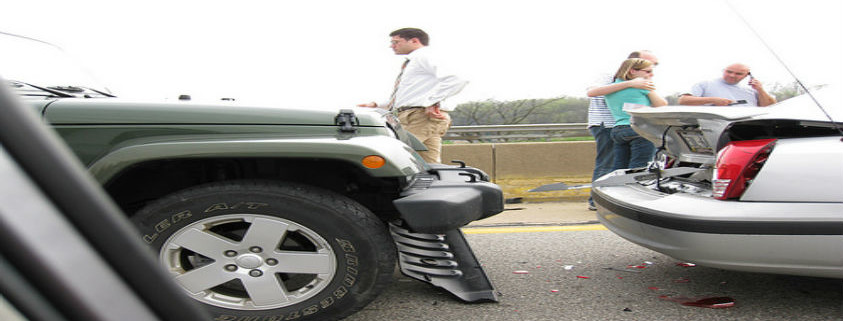
No one expects a car accident. Even if an accident at first doesn’t seem like “a big deal” because the impact wasn’t high velocity or there is no obvious or bleeding injury, dealing with the consequences of a car accident can turn out to be a big hassle or much worse.
1. Call 9-1-1
If there is any suggestion that someone in the accident may have sustained injury, call 911. If there is more than minimal damage to any involved vehicle, chances are someone has sustained an injury, even if not a bleeding injury or one that requires paramedics. The police in Las Vegas will investigate most accidents that occur on public roads.
The Las Vegas police did have a policy for some time of only investigating “injury accidents” by which they meant that that someone involved in the accident had to be taken away in an ambulance, or they would not investigate.
Many injured persons choose to have themselves driven to a hospital or urgent care facility after an accident. The fact that someone didn’t use an ambulance is not an indication that they aren’t injured. The Las Vegas police have abandoned this policy which resulted in many clear fault accidents turning into liability disputes.
2. Report Information Regarding the Offending Vehicle / Cell Camera Photos
Make a prompt effort to obtain identifying information about the other vehicle and driver. Use your cell phone camera to take photos of the other vehicle, preferably exactly where it was after the accident. Same regarding your own vehicle. Take a photo of the other vehicle’s license plate, and it’s registration an insurance papers. It might feel awkward to take photos of the driver and any passenger in the other vehicle, but it’s a good idea. Often the driver of the at fault vehicle claims to be a passenger to the police and the insurance company, because the driver was intoxicated, had no license and/or was an excluded driver on the insurance policy of the vehicle.
3. Secure Handwritten Admission of Fault from the Other Driver
If the other driver apologizes and admits fault, and the police are delayed in arriving, it’s Ok to have the other driver sign a brief statement admitting that he/she caused the accident. Drivers often apologize at the scene, and are cooperative there, but after leaving the scene have a change of heart and give a false version of the accident to their insurance carrier.
4. Seek Legal Representation Before Speaking to an Insurance Company
You are not obligated to contact your insurance company or other driver’s insurance company from the scene, and we recommend that you do not do so. You are better off hiring an attorney before communicating with any insurance company, even your own. If you speak to the insurance company on your own without legal representation, you may well say something that isn’t in your best interests. Think twice about allowing any insurance company representative to record you without the benefit having a lawyer counsel you first. Don’t be in a hurry to speak to insurance companies right after an accident.
5. Don’t Try to Have Your Insurance Agent or Company Present Your Claim to the Other Carrier
You need to look out for your own interests after an accident. Your own insurance company has pretty much an automatic conflict of interest with you because they want to reduce the payments that they make on claims. Trying to use your insurance company to open and present your claim to the other insurance carrier is not a good idea. Your insurance company may fail to protect you. Your insurance company is not a law firm. They are not your advocate. They do not have a legal duty to single mindedly pursue what is best for you. Their main interest may be in not having you present a claim to them, even though doing is in some cases in your best interest.
6. Seek Medical Attention After Accident
In some accidents, emergency care is required at the scene, and ambulance transport is followed by emergency room care. In many accidents, injuries are sustained, but don’t require emergency care. If no emergency care is required, or once emergency care has been obtained, seeking legal counsel is a wise move. There are a number of issues and considerations that arise after an injury accident, and simply trying to wing it is not likely to result in good solutions to the challenges that present themselves.
7. Attain Legal Representation
Your interests are not fully safeguarded until and unless you have a competent experienced accident attorney representing you. At the Law Offices of Eric Woods we know what you need to do to protect yourself and receive fair compensation. Call (702) 737-0000 or fill out our contact form for a free consultation today.

